
Biomedical writer Aimee Cunningham is on her second tour at Science News. From 2005 to 2007, she covered chemistry, environmental science, biology and materials science for Science News. Between stints Aimee was a freelance writer for outlets such as NPR and Scientific American Mind. She has a degree in English from the University of Michigan and a master’s degree in science journalism from New York University. She received the 2019 Award for Excellence in Science and Medical Journalism from the Endocrine Society for the article "Hormone replacement makes sense for some menopausal women."

Trustworthy journalism comes at a price.
Scientists and journalists share a core belief in questioning, observing and verifying to reach the truth. Science News reports on crucial research and discovery across science disciplines. We need your financial support to make it happen – every contribution makes a difference.
All Stories by Aimee Cunningham
-
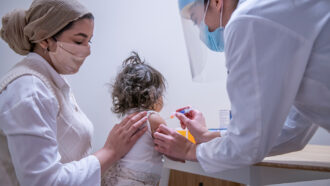 Health & Medicine
Health & MedicineAntibiotics diminish babies’ immune response to key vaccines
With each round of antibiotics during a child’s first two years, antibody levels to four vaccines dropped further from what’s considered protective.
-
 Health & Medicine
Health & MedicineRacial bias can seep into U.S. patients’ medical notes
Black patients were more often described negatively in medical notes than white patients, which may impact care.
-
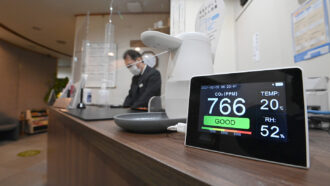 Health & Medicine
Health & MedicineWe can do better than what was ‘normal’ before the pandemic
With all that people have endured, it would be a missed opportunity to toss aside what we’ve learned from the COVID-19 pandemic.
-
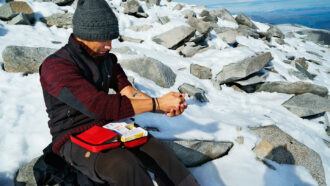 Health & Medicine
Health & MedicineA gene therapy for hemophilia boosts levels of a crucial clotting protein
A one-time, gene-based treatment for hemophilia increased the amount of a necessary blood clotting protein in men with a severe form of the disease.
-
 Health & Medicine
Health & MedicineMore than 5 million children have lost a parent or caregiver to COVID-19
The number of children who experienced the death of a parent or caregiver due to COVID-19 nearly doubled from May through October in 2021.
-
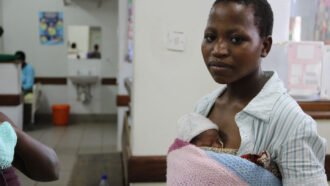 Health & Medicine
Health & MedicineChewing sugar-free gum reduced preterm births in a large study
Among 10,000 women in Malawi, those who chewed xylitol gum daily had fewer preterm births compared with women who didn’t chew the gum.
-
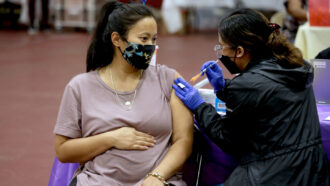 Health & Medicine
Health & MedicineWhy being pregnant and unvaccinated against COVID-19 is a risky combo
Being pregnant puts an individual at higher risk for severe illness and death from COVID-19, but vaccination has lagged among pregnant people.
-
 Health & Medicine
Health & Medicine50 years ago, researchers thought Americans outgrew marijuana
In the 1970s, it was thought that adults over age 25 may “outgrow” marijuana. Fifty years later, older adults are in on the action.
-
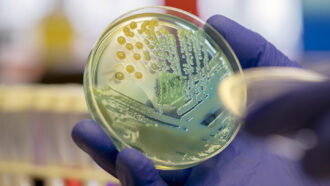 Health & Medicine
Health & MedicineAntimicrobial resistance is a leading cause of death globally
In more than 70 percent of the 1.27 million deaths caused by antimicrobial resistance, infections didn’t respond to two classes of first-line antibiotics.
-
 Microbes
MicrobesA sailor’s story captures the impact of rising serious fungal infections
Fungal infections are hard to diagnose, hard to treat and are on the rise. A young sailor is staying positive to navigate the challenges.
-
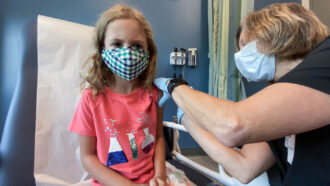 Health & Medicine
Health & MedicineWhat parents need to know about Pfizer’s COVID-19 vaccine for kids ages 5 to 11
Federal health officials authorized the Pfizer vaccine for this age group on October 29.
-
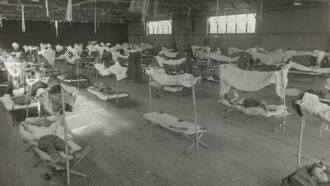 Health & Medicine
Health & MedicineEpidemics have happened before and they’ll happen again. What will we remember?
A century’s worth of science has helped us fend off infectious pathogens. But we have a lot to learn from the people who lived and died during epidemics.